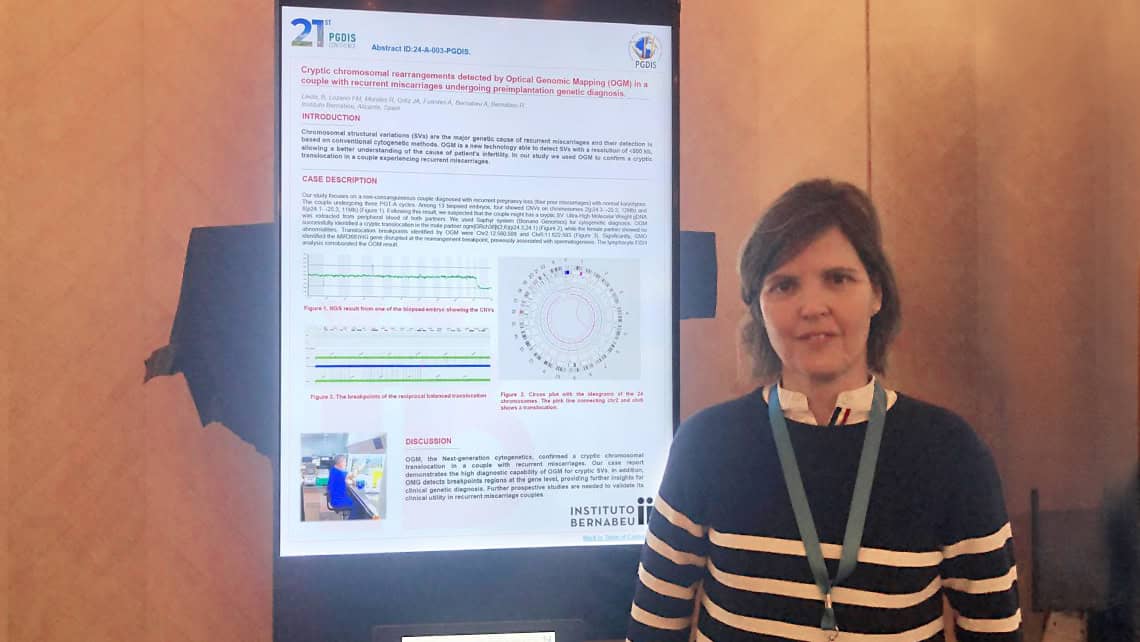Instituto Bernabeu presents in Malaysia two studies on Prei-mplantational Genetic Diagnosis.
17-05-2024

- Dr Belén Lledó has participated in the Preimplantation Genetic Diagnosis Society (PGDIS) international congress with two communications in poster discussion format.
- This important congress, held this year in Kuala Lumpur, brings together professionals from all over the world.
Instituto Bernabeu has been present at the annual congress of the International Society for Preimplantation Genetic Diagnosis, held in Kuala Lumpur, Malaysia. Dr Belén Lledó, Instituto Bernabeu Biotech scientific director, has participated in the congress presenting two communications in poster discussion format.
On the one hand, she has unveiled a study conducted at Instituto Bernabeu in which the GMO technique was used to analyse the chromosomes of embryos from a couple with a history of recurrent miscarriages. The study detected cryptic chromosomal rearrangements in some of the embryos, which could explain the cause of the miscarriages.
“Optical genomic mapping is a very promising genetic diagnostic technique in the field of assisted reproduction,” says Dr Lledó. “This technique allows us to detect chromosomal alterations that cannot be detected with other techniques, such as comparative genomic hybridisation (CGH), which helps us to identify the genetic cause of the patient’s reproductive problem and select the embryos with the greatest potential to achieve pregnancy”.
On the other hand, Lledó presented the results of a study comparing the results of IVF with oocyte donation in embryos in which a non-invasive PGTA (ni-PGTA) has been performed. The study found no significant differences in pregnancy rates between the two groups.
“These results suggest that ni-PGTA does not improve outcomes in IVF with oocyte donation,” said Belén Lledó. “The ni-PGTA is a less invasive and cheaper technique than conventional PGT-A, so we must continue in this line to prove its efficacy as a tool to improve clinical outcomes”.
